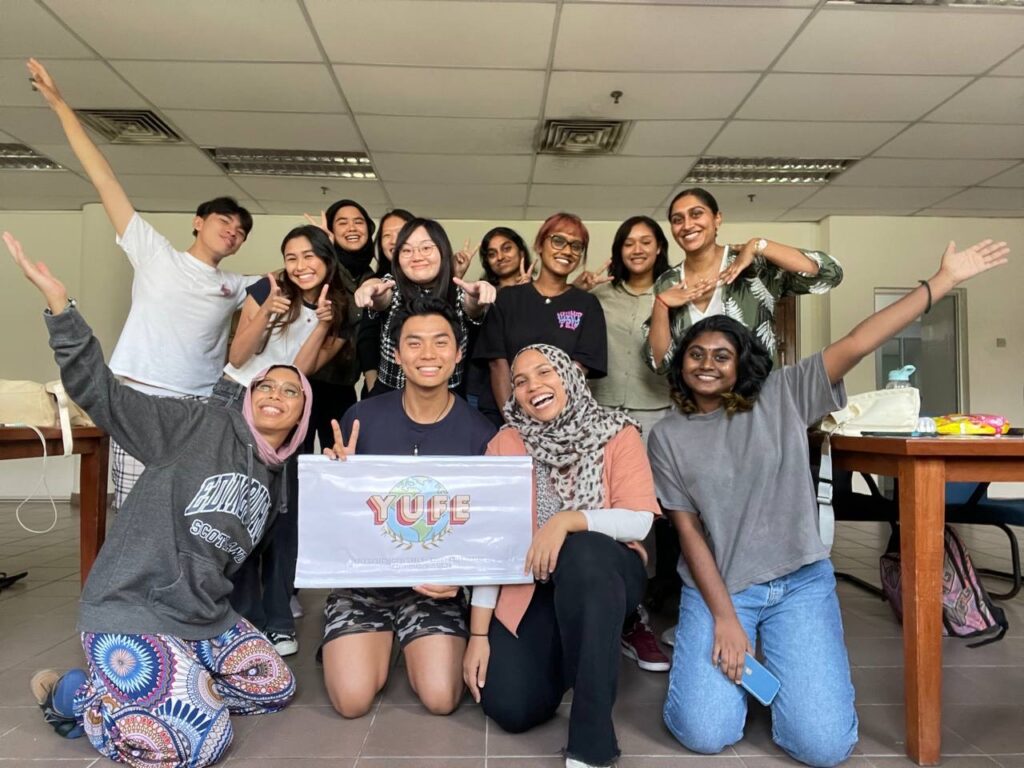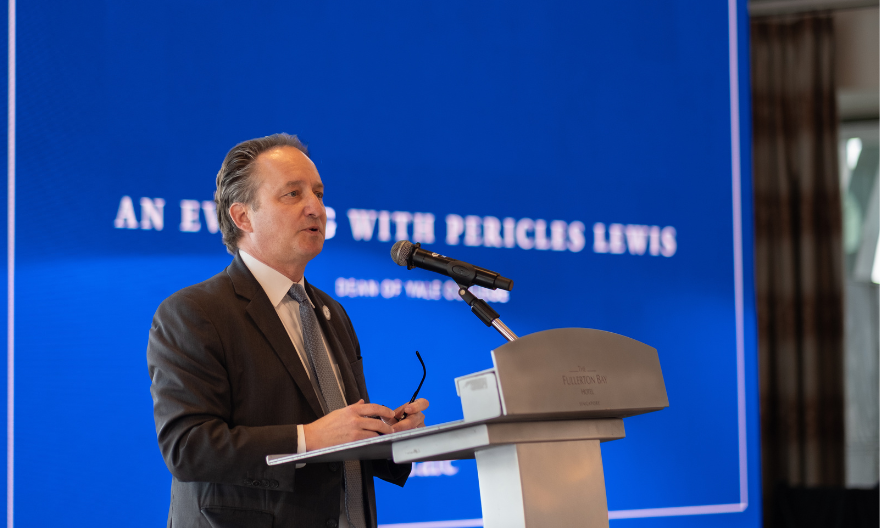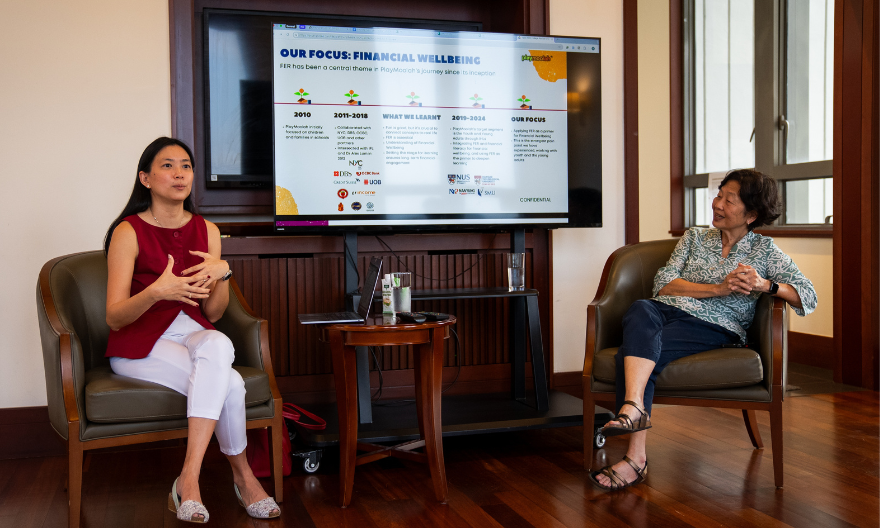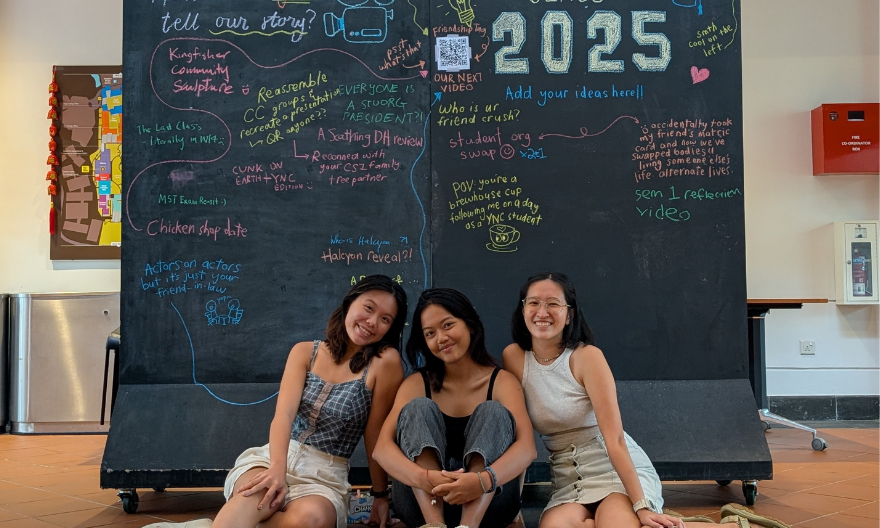Campaigning for environmental justice: Max Han presented with Diana Award 2023
He is the second Yale-NUS student nominated for the accolade

At Yale-NUS, education goes beyond the classroom, with many students applying their theoretical knowledge to solve pressing world issues. Max Han (Class of 2024), was recently awarded the prestigious Diana Award for his work in co-founding and driving Youths United for Earth (YUFE), a youth-led non-profit organisation aimed at mobilising young Malaysians to campaign for environmental action through environmental campaigns, storytelling and advocacy.
Established in honour of Princess Diana of Wales, the Diana Award recognises the efforts of young people involved in social work and humanitarian efforts across the globe. Max is the second Yale-NUS student to receive the award. In 2022, Nur Hazeem Abdul Nasser (Class of 2022) received it for starting two non-profits – ‘ALittleChange’ in 2016 to support low-income families and ‘The Signpost Project’ in 2019 to support retrenched elderly workers who sell tissues to make a living.
Read on as Max shares his experiences on building YUFE, winning the award and how his time at Yale-NUS has shaped his approach to environmental action.
How did you feel about winning the 2023 Diana Award?
I’m definitely humbled that our work of more than three years has been recognised. I also resonate strongly with the award’s values. The Diana Award was established in memory of Diana, Princess of Wales, who used her platform to powerfully advocate for destigmatising Human Immunodeficiency Viruses (HIV) patients at a time where there was little recourse for them. I’m truly honoured to carry on her values in my work – using my knowledge intentionally and wisely, and standing up for what I believe in: a just and liveable Earth.
I do also want to add that this award is not and should not be a recognition of myself but rather the incredible work of Malaysian environmentalists and communities. I hope this international recognition can spotlight the amazing progress of all the initiatives young people in Malaysia are driving to advance local action and attract funding for the most marginalised groups on the frontline of climate change impacts.
How has the Yale-NUS curriculum and/or education helped you in your vision to advance environmentalism?
As a non-profit leader, I often engage and work with different stakeholders encompassing communities, non-governmental organisations (NGOs), the public and private sector.
The Environmental Studies and Sociology courses I’ve taken here have enhanced my interdisciplinary thinking and taught me that the best environmentalists can speak the language of different stakeholders. I also want to highlight Yale-NUS Assistant Professor of Social Sciences (Environmental Studies) Anthony Medrano, Yale-NUS Associate Professor of Social Sciences (Environmental Studies) and Head of Studies (Environmental Studies) Professor Marvin Montefrio, and Yale-NUS Lecturer of Humanities (Literature) Emily Dalton who all showed me immense support for my endeavours beyond the classroom through intellectual conversations and polishing my critical thinking skills.
What prompted you to begin Youths United for Earth (YUFE)?
I co-founded YUFE more than three years ago. We started out as a community project grounded on youth empowerment and local environmental narratives, and eventually evolved into a non-profit to scale our impact.
During my secondary school years, I worked with local communities and children on plastic pollution education and conducted research with conservationists on turtles and colugos, a common nocturnal animal in Malaysia. I realised two things. Firstly, local contexts matter: Many Malaysians know of polar bears and ice caps melting, but not necessarily our local biodiversity and environmental issues. We need to start localising our climate narratives, so people are more likely to act upon issues that are familiar to them. As the Malay phrase goes, “tak kenal maka tak cinta” (you can’t love what you don’t know).
Second, young people are a tour de force for climate action: During one of my workshops, a six-year-old asked me, “Why is everyone so focused on plastic straws and not the whole plastic cup itself?” I was so impressed by these kindergarteners who not only thought critically but were also determined to safeguard our future. Whatever we lack in experience, we make up with passion – we just need to be empowered.
I gathered my co-founder Fatin and a few friends together to start YUFE with the hopes of addressing what I saw. Through YUFE, we’re building a repository of local environmental knowledge through the work of Malaysian environmentalists and empowering Malaysian youths to take environmental action.
Are there any memorable campaigns that you’ve organised with YUFE so far?
We recently worked with our friends at Reef Check Malaysia to support their campaign opposing the development of the proposed airport in Tioman Island, which would degrade the fragile marine ecosystems there. We rallied awareness and civil society support to channels opposing the project and had our work reach more than 40,000 people. Recently, environmentalists across Malaysia celebrated an immense victory when the Malaysian government scrapped the project completely due to the rising number of environmental concerns!
We’ve also been standing in solidarity and working with the civil society groups in Penang on their Penang Tolak Tambak campaign, which opposes a huge reclamation project that would displace thousands of fisherfolk.
What future plans do you have for YUFE?
I want YUFE to be the go-to resource and community hub for Malaysian youths wanting to take environmental action. We want to make advocacy accessible to youths beyond urban areas and are currently building a map containing environmental initiatives across the nation. Anyone can then go to our map, find a community initiative near them and kickstart local action. We are also in the process of building local climate action chapters across the nation. Eventually, YUFE’s legacy will be a self-sustaining community, where Malaysian youths can continually pursue a just future and pass the baton on to the next generation.
Beyond Malaysia, we’ve launched a podcast highlighting environmental movements across Southeast Asia to international audiences. We are also coordinating community consultations and striving to elevate youth voices in policies and decision-making. This August, I worked with the ASEAN Intergovernmental Commission on Human Rights, policymakers, lawyers, and civil society to draft Southeast Asia’s first ever environmental rights framework. We aim for this framework to provide environmental defenders and communities with more legal empowerment.




